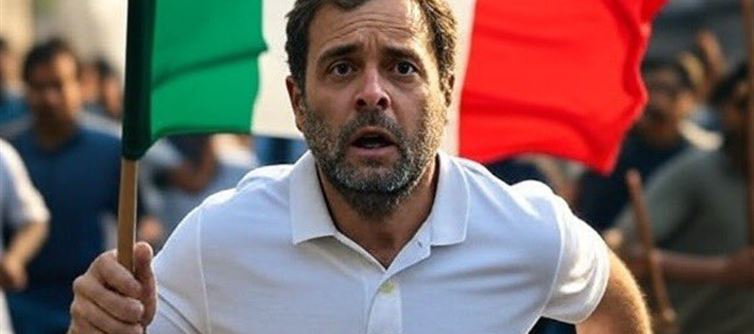
Bihar woke up one fine morning to see rahul gandhi and Pappu Yadav in the same frame, smiling like long-lost cousins at a wedding. Pragmatically speaking, it made sense. congress is a weak player in bihar, and Pappu — love him or hate him — has grassroots muscle. For rahul, the handshake was a simple chess move: “Bring in the local kingpin, expand the alliance, show the bjp we’re serious.”
But politics in bihar isn’t chess. It’s WWE. And the crowd loves a good chair shot.
The symbolism was powerful: the gandhi scion reaching out to a man who thrives on street-level politics. But here’s the catch — symbolism without substance is like serving biryani without the meat. Nice aroma, no bite. Until seat-sharing is inked, all this looks like foreplay before an election where only the serious wrestlers step into the ring.
And then came the flashpoint: RJD. For years, the Yadav kingdom of Lalu and Tejashwi has been the crown jewel of Bihar’s opposition politics. Suddenly, Pappu Yadav — once a rebel, sometimes a rival — is brought into the limelight. Cue the dramatic background music. You can almost picture RJD leaders whispering, “Wait… is congress plotting to sideline us? Or is this just rahul being Rahul?”
The result? A simple handshake became chaos squared. Instead of strengthening opposition unity, it risked reopening old wounds. Pappu vs. RJD, congress vs. allies, allies vs. each other — the political drama writes itself.
So, what began as a strategic move quickly escalated into a soap opera. rahul wanted to show “unity.” What he actually showed was how fragile unity is in bihar, where one photo can shake alliances more than an actual election.
In short: rahul and Pappu didn’t just make news. They made chaos. And in bihar politics, chaos is the default setting.




 click and follow Indiaherald WhatsApp channel
click and follow Indiaherald WhatsApp channel